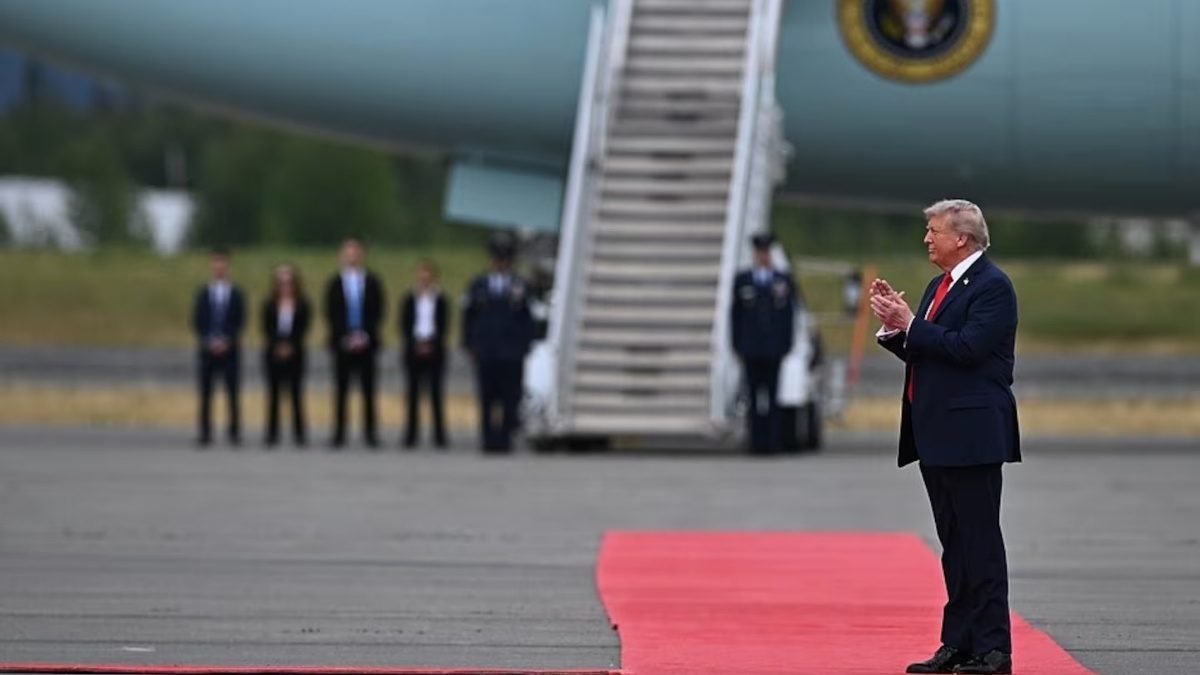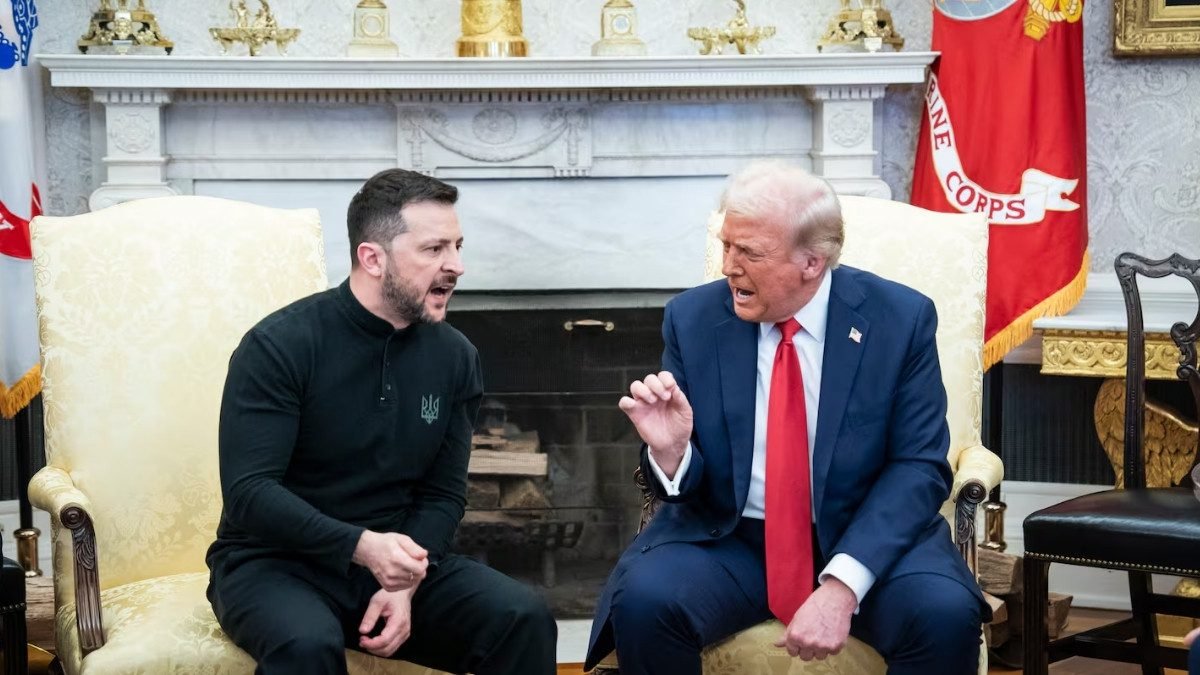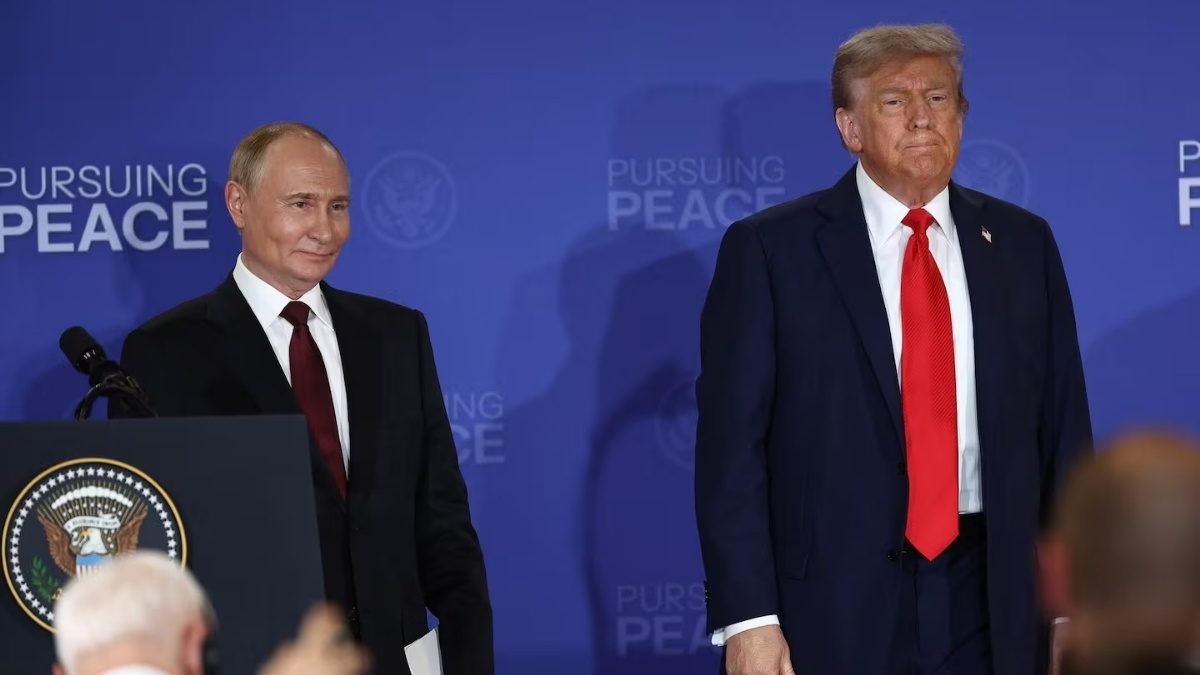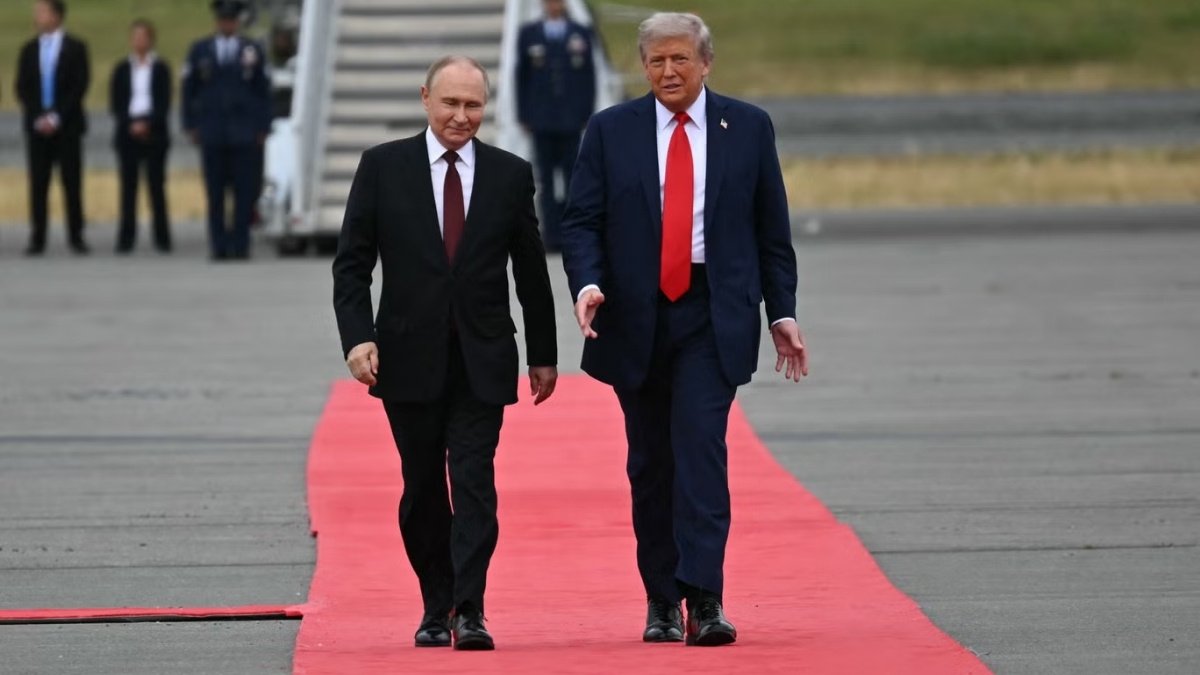President Donald Trump tried to present his recent summit with Russian President Vladimir Putin as a success, but insiders say the reality is far different. According to longtime biographer Michael Wolff, a member of Trump’s inner circle bluntly texted him: “F–ked.” The source did not provide more details.
Wolff told The Daily Beast Podcast that the Alaska summit left Trump as the apparent loser, despite the public narrative. “Trump got f—ed,” Wolff said, agreeing with The Washington Post that the meeting was more about optics than substance.
The summit began with a lavish red-carpet welcome for Putin. U.S. airmen rolled it out at Trump’s direction, as F-35 fighter jets and a B-2 bomber flew overhead. Trump applauded Putin and offered a ride in the presidential limousine, nicknamed the “Beast.”
Critics highlighted the contrast between Trump’s treatment of Putin and previous interactions with Ukrainian President Volodymyr Zelensky. Trump had appeared warm and celebratory with Putin while berating Zelensky during a February meeting in Washington for not showing enough gratitude to the United States.
Trump’s main objective in Alaska was to secure a ceasefire in the Kremlin’s ongoing war in Ukraine. However, no assurances were obtained. “There is nothing that [Trump] could say. He threatened tariffs and walkouts but instead embraced Vladimir Putin,” Wolff explained.

After the meeting, Trump appeared subdued and silent during a brief press session. Joanna Coles, co-host of The Daily Beast Podcast, described his quietness as unusual. “It’s embarrassing and it’s dirty,” she said, criticizing Trump’s approach toward Putin.
During the return flight on Air Force One, Trump reportedly called Zelensky for an hour and a half. European leaders joined the last 30 minutes of the conversation. Axios sources described the call as “difficult” but did not disclose the responses of the foreign officials.
Trump later claimed that the summit was a success, moving the goalposts away from achieving a ceasefire. He said such agreements “oftentimes do not hold up,” a statement that could disappoint Zelensky and his advisors.
Observers noted the irony in Trump’s Alaska gestures. While he offered Putin a grand reception, the U.S. gained little in return. Hundreds of thousands have died in Ukraine, millions have been displaced, and yet the Kremlin made no concessions during the meeting.
The summit has also generated political implications domestically. By focusing global attention on Putin, Trump may have temporarily shifted focus from controversies involving the late Jeffrey Epstein. Wolff warned that the Epstein-related scrutiny remains active among Trump’s critics and supporters.
In response to Wolff’s comments, the White House issued a statement denouncing the biographer. Communications Director Steven Cheung called Wolff a “lying sack of s–t” and accused him of fabricating stories due to “Trump Derangement Syndrome.”
Trump’s critics argue that the optics of Alaska were starkly in favor of Putin. From the red carpet to the fighter jet flyover, the summit showcased Russian power rather than U.S. leverage. Analysts say this is a rare public moment where Trump’s image may have been damaged abroad.
The president’s attempts to frame the meeting positively may clash with international expectations. European allies have emphasized that peace negotiations in Ukraine cannot proceed without a verified ceasefire, something the summit failed to secure.
Wolff described the Alaska meeting as a “failure” and suggested that those close to Trump understand it. Despite the public spin, insiders acknowledge that Trump did not achieve the strategic outcomes he promised before the summit.
The timing of the summit, amidst ongoing scrutiny of Trump’s past controversies, raises questions about distraction tactics. Coles speculated that the White House may have deliberately shifted attention to international diplomacy to divert attention from domestic scandals.
Trump’s interaction with Putin also contrasts sharply with previous U.S. engagements with leaders of nations under scrutiny. The applause and limousine ride given to Putin symbolize a public warmth rarely afforded to allies affected by Russian aggression.
Critics argue that this approach risks undermining U.S. credibility on the global stage. Ukraine’s struggle continues, and the lack of a ceasefire leaves diplomatic negotiations in a fragile state, raising concerns among both American and European policymakers.
The White House insists that the summit was productive, despite media reports to the contrary. Officials argue that Trump’s flexible approach to negotiations reflects a pragmatic stance, even if no immediate agreements were signed.
Observers note that Trump’s Alaska performance highlights a recurring pattern of prioritizing spectacle over tangible policy gains. By staging an elaborate reception, the administration emphasized image rather than concrete results, according to analysts.
The summit’s aftermath has been closely monitored by political commentators. Wolff and Coles emphasize that Trump’s public claims of success may not match the private consensus within his team. Internal assessments suggest dissatisfaction with the outcomes, though few insiders speak on record.

European leaders, including those joining Zelensky on Air Force One, are said to have remained cautious about praising the meeting. No official communiques indicated that any new agreements were reached during the Alaska session.
Trump’s communication strategy has shifted since the summit. By focusing on general statements of success rather than specific gains, he may be attempting to maintain domestic support while avoiding direct acknowledgment of failure.
Analysts warn that this strategy could backfire. Public perception of the summit as a lost opportunity may influence voter sentiment, particularly among Americans closely following foreign policy and Ukraine-related developments.
The Alaska summit is now being discussed as a high-profile example of diplomacy overshadowed by political theater. Critics say that without measurable outcomes, the visual spectacle of jets and limousines offers little substantive value.
In conclusion, the Alaska meeting between Donald Trump and Vladimir Putin has prompted debate over the president’s negotiation style, the effectiveness of U.S. diplomacy, and the domestic and international perception of his leadership. While Trump touts success, insiders and analysts describe a more sobering reality.















